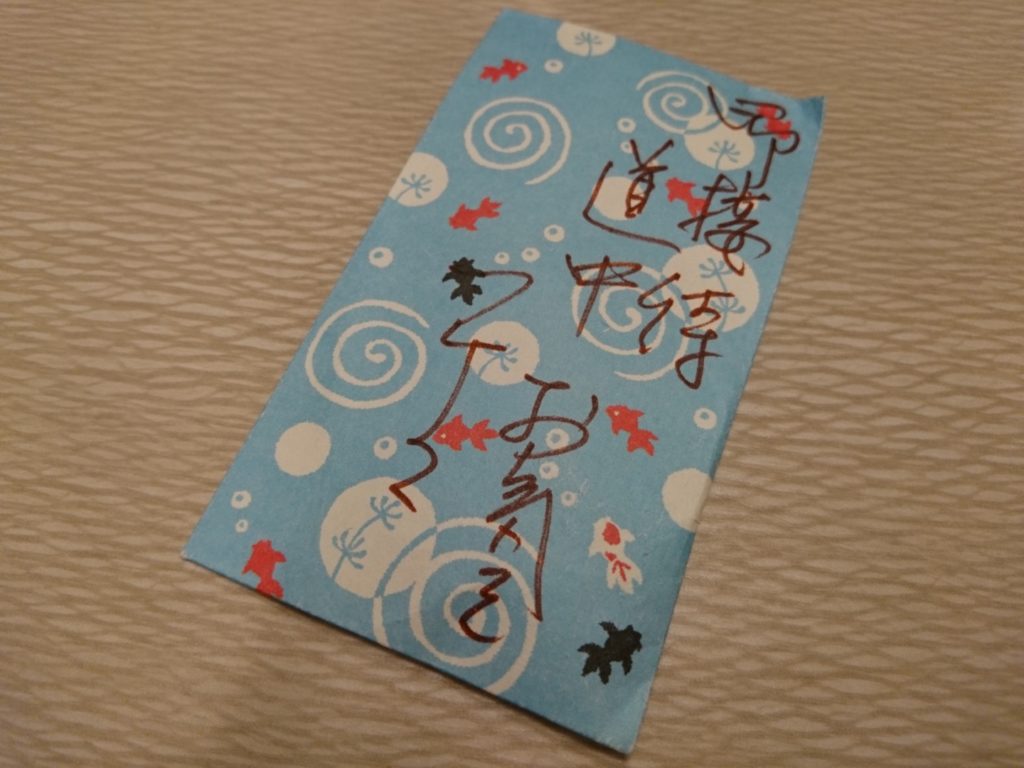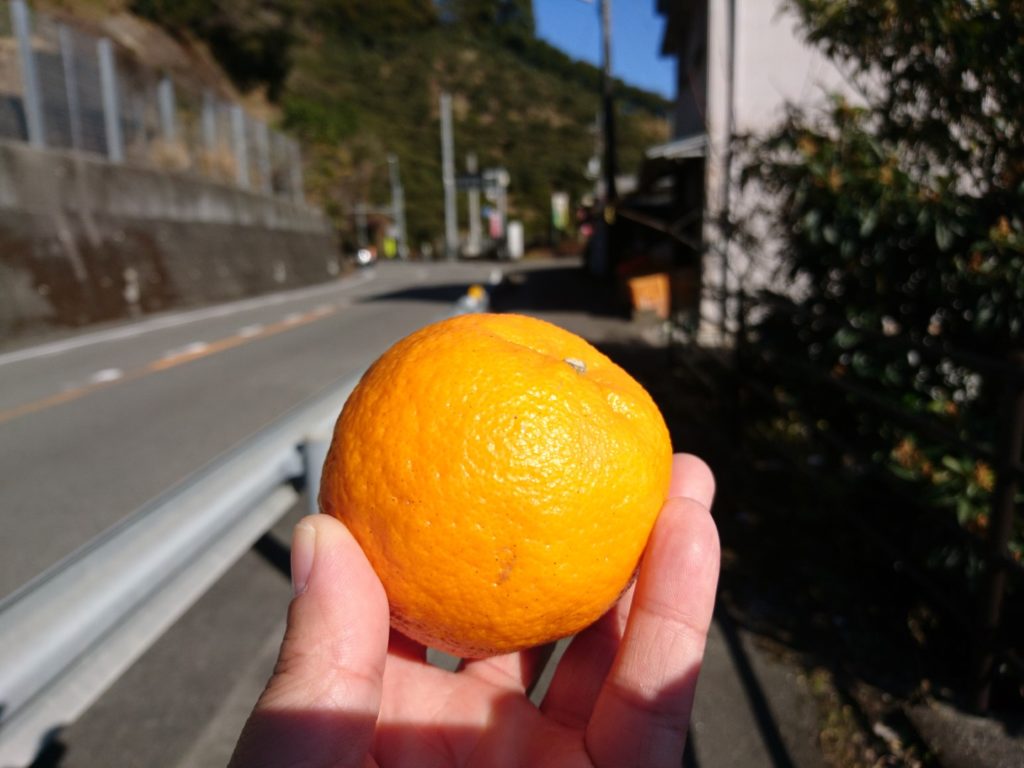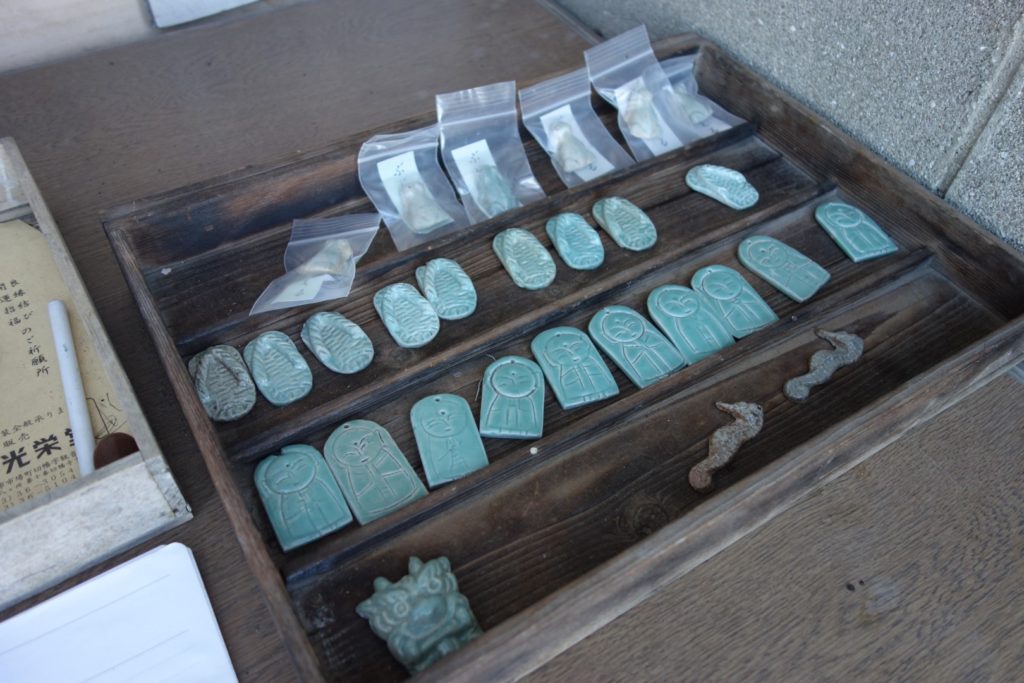One thing which I was surprised during my pilgrimage was Osettai culture. Walking pilgrims sometimes get offer of free accommodation, resting place, food, drinks and free ride. It seems that local people in Shikoku especially elder people consider walking pilgrims as Kobo-Daishi (founder of Koya-san and this Shikoku Henro Pilgrimage). And because of that Osettai (kind consideration for pilgrims) seems to be considered as charity to Kobo-Daishi.

Indeed, I was surprised when old lady spoke to me and handed this to me, since I understood that it includes some money. When I was about to refuse this offer, then she told me about her story. She’s accumulating good deeds by doing this and when she finishes this Osettai 100 times, she is going to visit Koya-san to meet Kobo-Daishi. Now I understand why it is said that pilgrim should always thankfully accept Osettai. And when you accept Osettai, it is said that you’d better to give your Osame-fuda (votive card) to show your gratitude.

I did my pilgrimage during February, and orange is seasonal fruit. Local people offered me oranges several times. One time, they suddenly stop their car and give it to me, the other time, they just put plenty of them in front of their house, saying that please take some for refresh. I really appreciated it while I was tired for walking long distance.

I found this while walking in the town which is famous for producing roof tiles. They offered walking pilgrims these charms. You might wonder why frog is here. The pronunciation of frog in Japanese is same for the word going home. So it prays for finishing pilgrims and going home safely. I received this one gratefully.
Osettai is not something pilgrims would expect. However, if you happen to get such kindness from local people, I think you’d appreciate it.
Leave a Reply